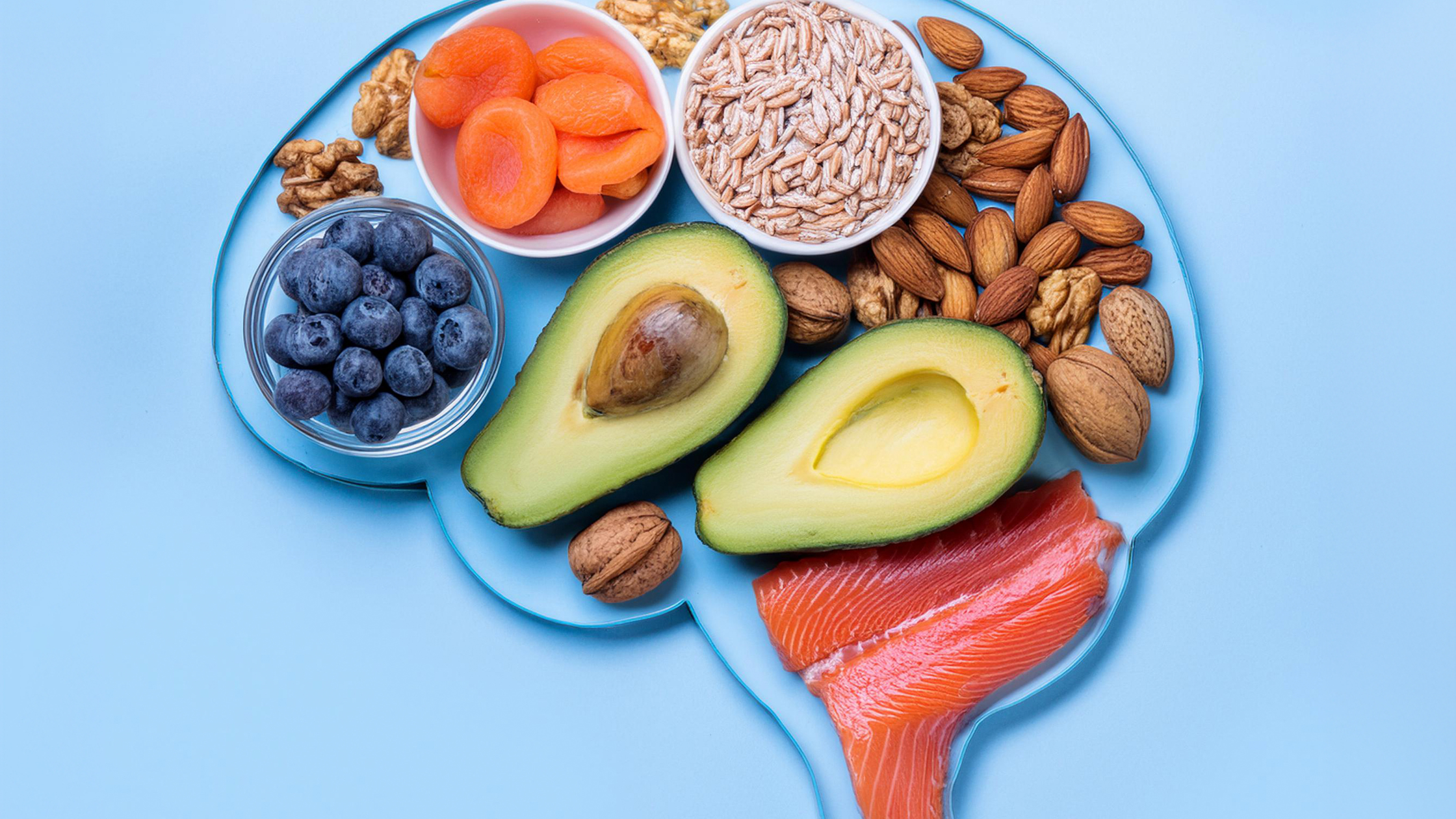
Natural Ways to Improve Gut Health and Digestion
Table of Contents
Introduction: The Importance of Gut Health
Your gut does more than just digest food—it plays a crucial role in immune function, mood regulation, and overall health. Research shows that a balanced gut microbiome is linked to better digestion, stronger immunity, and even mental clarity.
However, modern diets, stress, and environmental factors can disrupt gut health, leading to issues like bloating, sluggish digestion, and food intolerances. The good news? You can naturally support gut health through nutrient-rich foods, lifestyle changes, and targeted supplements.
In this guide, we’ll explore the best natural strategies to improve digestion and restore gut balance, helping you feel your best from the inside out.
Understanding the Gut Microbiome
The gut microbiome is a complex ecosystem of trillions of bacteria, fungi, and other microorganisms living in the digestive tract. These microbes help break down food, absorb nutrients, and regulate immune function.
Why Is the Gut Microbiome Important?
A well-balanced gut microbiome supports:
- Efficient Digestion: Gut bacteria help break down fiber, proteins, and carbohydrates for nutrient absorption.
- Immune System Strength: Over 70% of the immune system resides in the gut, making microbiome balance essential for immune defense.
- Mood and Brain Health: The gut produces neurotransmitters like serotonin, which influence mood and stress levels.
- Reduced Inflammation: A healthy gut helps regulate inflammatory responses throughout the body.
Maintaining microbiome balance is key to optimal digestion and overall well-being.
Signs of an Unhealthy Gut
Many people experience gut imbalances without realizing it. Some common signs of poor gut health include:
- Bloating and Gas: Excess gas production can signal imbalanced gut bacteria or difficulty digesting certain foods.
- Irregular Bowel Movements: Constipation or diarrhea may indicate gut microbiome imbalances.
- Food Sensitivities: An inflamed gut lining may contribute to increased sensitivity to certain foods.
- Frequent Fatigue: Poor gut health can impair nutrient absorption, leading to low energy levels.
- Weakened Immunity: If you get sick often, your gut health may be compromised, as most immune defenses start in the gut.
Addressing gut imbalances early can help prevent long-term digestive issues and chronic inflammation.
Best Foods for Gut Health
The foods you eat play a crucial role in maintaining a healthy gut. Certain foods help nourish the gut microbiome, while others can disrupt it. Incorporating gut-friendly foods into your daily diet can support digestion and overall wellness.
Fiber-Rich Foods
Fiber is essential for gut health because it acts as a prebiotic, feeding beneficial bacteria in the gut. Foods high in fiber help regulate digestion, prevent constipation, and maintain microbiome balance.
- Leafy greens (spinach, kale, Swiss chard)
- Cruciferous vegetables (broccoli, Brussels sprouts, cauliflower)
- Legumes (lentils, chickpeas, black beans)
- Whole grains (oats, quinoa, brown rice)
Probiotic-Rich Foods
Probiotics are live bacteria that help populate the gut with healthy microbes. Regular consumption of probiotic foods can improve digestion and strengthen the immune system.
- Fermented vegetables (sauerkraut, kimchi, pickles)
- Yogurt with live cultures
- Kefir (a fermented dairy or water-based drink)
- Miso and tempeh (fermented soy products)
Anti-Inflammatory Foods
Chronic inflammation in the gut can lead to digestive discomfort, bloating, and food sensitivities. Consuming anti-inflammatory foods helps reduce gut irritation and supports overall digestion.
- Turmeric (contains curcumin, a powerful anti-inflammatory compound)
- Ginger (supports digestion and helps reduce nausea)
- Wild-caught salmon (rich in omega-3 fatty acids, which combat inflammation)
- Berries (loaded with antioxidants that protect gut cells)
Lifestyle Habits to Support Digestion
In addition to diet, certain lifestyle habits can help improve digestion and maintain gut health. Small daily changes can have a significant impact on how well your gut functions.
Stay Hydrated
Water is essential for breaking down food and aiding nutrient absorption. Dehydration can slow digestion and contribute to bloating and constipation.
Tip: Aim for at least eight glasses of water per day, and consider adding lemon or herbal teas for extra digestive support.
Practice Mindful Eating
Eating too quickly or while distracted can lead to overeating, indigestion, and poor nutrient absorption. Mindful eating helps your body properly digest and process food.
Tip: Chew food thoroughly, eat slowly, and avoid distractions like watching TV while eating.
Manage Stress Levels
Chronic stress can negatively impact gut health by altering microbiome balance and increasing inflammation. Managing stress through relaxation techniques can help support digestion.
Tip: Incorporate deep breathing, meditation, or light exercise into your daily routine to reduce stress-related digestive issues.
Get Enough Sleep
Your gut microbiome follows a circadian rhythm, meaning it functions best when you have a consistent sleep schedule. Poor sleep can disrupt digestion and contribute to gut imbalances.
Tip: Aim for 7–9 hours of sleep per night and create a bedtime routine to improve sleep quality.
Exercise Regularly
Physical activity promotes better digestion by increasing circulation and stimulating intestinal motility. It can also help regulate appetite and support microbiome balance.
Tip: Engage in daily movement like walking, yoga, or strength training to support overall gut function.
Key Nutrients and Supplements for Gut Health
While a balanced diet and healthy lifestyle are the foundation of good digestion, certain nutrients and supplements can provide additional support. These nutrients help maintain gut lining integrity, microbiome balance, and digestive enzyme production.
Probiotics: Restoring Gut Microbiome Balance
Probiotics are beneficial bacteria that support digestion, enhance nutrient absorption, and help regulate immune function. They can be found in fermented foods and high-quality probiotic supplements.
Best Probiotic Strains for Gut Health:
- Lactobacillus acidophilus – Supports digestion and immune function.
- Bifidobacterium bifidum – Helps maintain microbiome balance and reduces bloating.
- Saccharomyces boulardii – A probiotic yeast known for its role in supporting gut barrier function.
Prebiotics: Fuel for Healthy Gut Bacteria
Prebiotics are types of fiber that serve as food for beneficial gut bacteria. They help probiotics thrive and contribute to a balanced microbiome.
Best Prebiotic Foods:
- Garlic and onions
- Bananas
- Asparagus
- Oats
- Flaxseeds
Digestive Enzymes: Supporting Nutrient Absorption
Digestive enzymes help break down food, making it easier for the body to absorb nutrients. Supplementing with enzymes can support better digestion, reduce bloating, and enhance nutrient utilization.
Key Digestive Enzymes:
- Amylase – Breaks down carbohydrates.
- Protease – Helps digest proteins.
- Lipase – Supports fat digestion.
- Lactase – Aids in lactose digestion for those who are lactose intolerant.
L-Glutamine: Gut Lining Repair
L-Glutamine is an amino acid that plays a key role in maintaining the integrity of the intestinal lining. It is particularly beneficial for individuals dealing with leaky gut syndrome or digestive inflammation.
Best Food Sources of L-Glutamine: Bone broth, cabbage, eggs, and almonds.
Zinc: Supporting Gut Barrier Function
Zinc is essential for tissue repair and immune function. It supports gut lining integrity and can help reduce inflammation caused by digestive disorders.
Best Sources of Zinc: Pumpkin seeds, oysters, beef, and chickpeas.
Frequently Asked Questions
How long does it take to improve gut health?
While individual results vary, most people notice improvements in digestion, energy levels, and bloating within 2–4 weeks of making dietary and lifestyle changes.
Can poor gut health affect mental well-being?
Yes. The gut is often called the "second brain" because it produces neurotransmitters like serotonin, which influences mood. An imbalanced gut can contribute to stress, anxiety, and fatigue.
What foods should I avoid for gut health?
Processed foods, excess sugar, artificial sweeteners, and high amounts of alcohol can negatively impact gut health by disrupting microbiome balance and increasing inflammation.
Are probiotic supplements necessary if I eat fermented foods?
Fermented foods provide probiotics, but supplementing with clinically studied strains may offer additional benefits, especially for those with digestive imbalances.
Does intermittent fasting improve gut health?
Yes. Fasting gives the digestive system time to rest and may promote a healthier gut microbiome by allowing beneficial bacteria to thrive.
Final Thoughts
Maintaining a healthy gut is essential for overall well-being, influencing digestion, immunity, and even mental health. By incorporating fiber-rich foods, probiotics, digestive enzymes, and gut-supporting nutrients, you can promote a balanced microbiome and reduce digestive discomfort.
Small, consistent changes—such as eating more whole foods, staying hydrated, managing stress, and getting enough sleep—can significantly improve gut health. While diet and lifestyle remain the foundation, strategic use of supplements like probiotics, prebiotics, L-glutamine, and digestive enzymes can further enhance your digestive function.
Whether you're looking to improve digestion, reduce bloating, or strengthen your gut lining, these natural approaches provide long-term support for optimal health.









